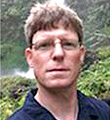3 December 2014
The Clean Energy Solutions Center, in partnership with the U.S. Department of Energy and the National Renewable Energy Laboratory, is hosting a no-cost webinar on a mini-grids quality assurance (QA) framework currently under development.
This webinar will present the current draft status of the mini-grids QA framework, which is designed to address the root challenges of providing quality power to remote consumers through financially viable mini-grids. The QA framework will define different levels of service, ranging from basic to high, with each level including standard thresholds for power quality, reliability and availability. The QA framework will also outline a common accountability and reporting framework that provides customers, funding organizations and regulators access to information verifying power delivery, enabling greater confidence and potential aggregation of projects.
Webinar presenters will walk through the draft tiers of service and the proposed accountability mechanisms, soliciting stakeholder input. This webinar will include a question-and-answer session to allow for audience engagement and feedback. Donors supporting mini-grids deployment are a primary target audience for this work, and consultation with mini-grid operators themselves is also a central dimension of the project to ensure that the QA framework that results from this process makes sense in practice, not just in theory.
Panelists
 Rose M. Mutiso, Energy Access Policy Fellow, U.S. Department of Energy
Rose M. Mutiso, Energy Access Policy Fellow, U.S. Department of Energy
Presentation
Rose M. Mutiso is an Energy Access Policy Fellow in the Office of International Climate Change Policy and Technology at the U.S. Department of Energy. In this capacity, she works on a range of energy access policy issues through the Global Lighting and Energy Access Partnership (Global LEAP) initiative of the Clean Energy Ministerial, as well as engagement on Power Africa's Beyond the Grid Initiative and the U.S.-India Promoting Energy Access through Clean Energy (PEACE) Initiative. Previously, Rose served as an Energy and Innovation Policy Fellow in the office of U.S. Senator Christopher A. Coons. A native of Nairobi, Kenya, Rose earned her BA and BE in Engineering Sciences with a concentration in Materials Science from Dartmouth College and her Ph.D. in Materials Science and Engineering from the University of Pennsylvania.
 E. Ian Baring-Gould
E. Ian Baring-Gould
Presentation
E. Ian Baring-Gould graduated with a MSME from the University of Massachusetts Renewable Energy Research Laboratory in 1995 and started working at the National Renewable Energy Laboratory (NREL) of the United States. Ian's work at NREL has focused in three primary areas: applications engineering for renewable energy technologies, assistance in renewable energy uses and educational outreach for renewable energy technologies, primarily wind. His applications work concentrates on innovative uses of renewable energy, primarily the modeling, testing and monitoring of small power systems, end use applications and large diesel plant retrofit concepts. International technical assistance has focused in energy development for rural populations including the design, analysis, and implementation of remote power systems, primarily through NREL's Energy and Environmental, International Programs Office. Educational outreach, including field technical assistance, has focused in energy development for rural populations and school outreach programs such as the Wind for Schools program, both domestically and internationally. Ian also sits on the International Energy Agency research taskforce looking at wind turbine operation in cold climates and is an editor for Wind Engineering. Ian has authored or co-authored over 60 publications on wind energy and wind diesel power systems. Ian is currently the Wind Technology Deployment Manager at NREL, focusing on assisting organizations deploy wind technologies and addressing barriers to the implementation of wind energy through programs like DOE's Wind Powering America Project.
